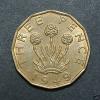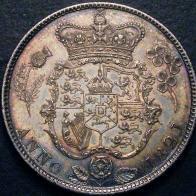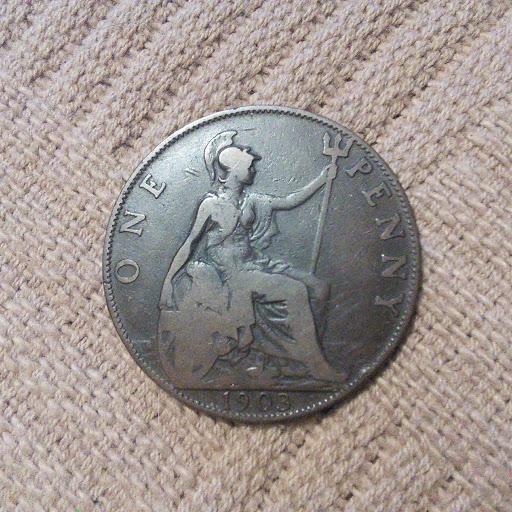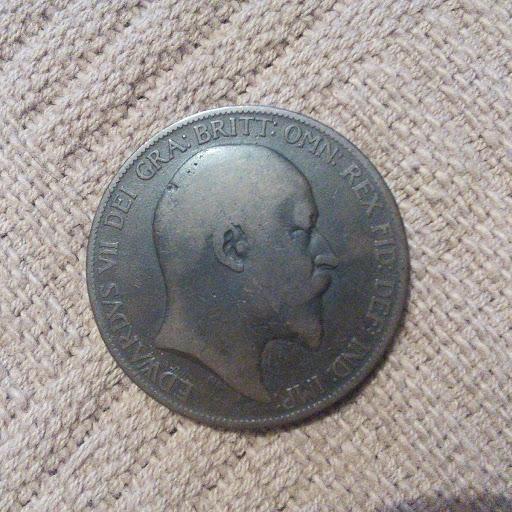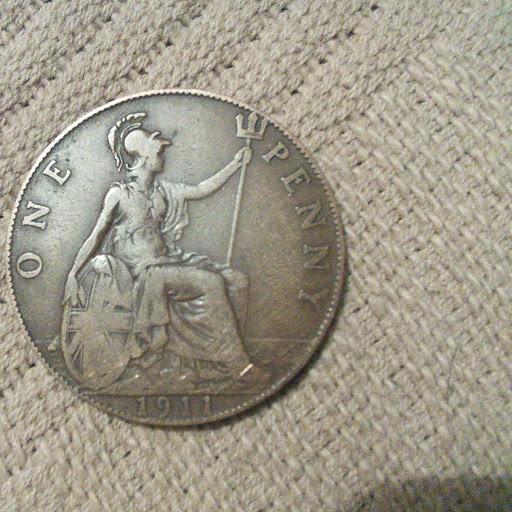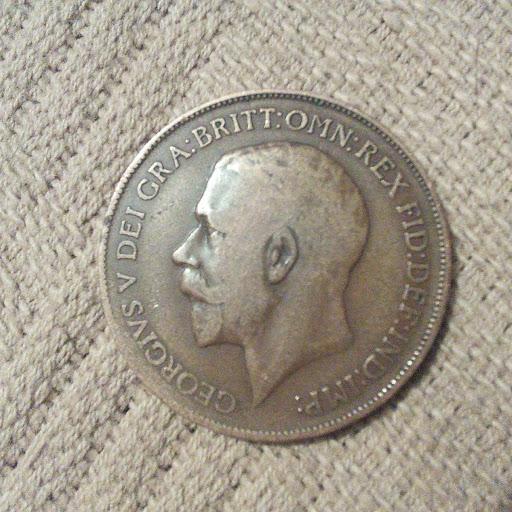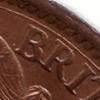Leaderboard
Popular Content
Showing content with the highest reputation on 06/10/2019 in all areas
-
It's in British Numismatic Journal, 1967, p196-8 and is on a web as a PDF - it was a list of new varieties that Peck would presumably have added in a 3rd addition of his book, if he'd had time to update it. But unfortunately he died the next year. Also is 1882 penny no H, and other interesting ones. Put "Peck BNJ 1967" into Google and scroll down to "....miscellanea - British Numismatic Society"2 points
-
Given their condition, I'm not sure they're really "penny acquisition of the week" class, but they are scarce and they were bargains. A 1903 open 3 and a 1911 hollow neck, Gouby X. I don't normally collect non Freeman ID'd pennies, but this one is so well known that I couldn't turn down the opportunity at just £30 (unopposed bidder).2 points
-
Ah, thanks. Very interesting. Indeed, wonder what did happen to that. Lost in the mists of time. It can be seen here. Item No 24, page 1971 point
-
1 point
-
Excellent, thanks. Only just noticed this as it didn't come up in my notifications.1 point
-
No it's not just you. I wasn't even aware of the term until somebody at work was reading from a menu of some description, and said "your latte will be served by a barista (except she pronounced it as "barrister") leading me to wonder what the hell a barrister was doing serving coffee. I think next time I visit Starbucks, I'll just snap my fingers and shout "waiter", when I want service. Barista just sounds pretentious.1 point
-
I got a 1950's 6pence in my change in 2009. I guess they thought it was a 5p. Hard to imagine that coin floating around for 50 odd years.1 point
-
I'm down to 9 after picking this up from The Druid last month1 point
-
1 point
-
It was actually easy in the end - I just did a Spotlight search for 'Declan' and there it was! Proves that good naming brings its own rewards. Unfortunately, after eBay changed its search software, it became rather more complicated, but FWIW, here is Declan's technique: Perhaps I should share one of my trade secrets. Don’t tell anyone. This is a filtering mechanism that I have developed over many years, and tonight, it reduced the list of what was presented to me from nearly a quarter of a million results to 66,000. That means that 75% of the list is removed before I even see it, and if you sort your query by Ending Soonest, it means that I really can have a quick look through eBay to see if there is anything finishing tonight that takes my fancy. Make a cup of tea at this point if you’re still with me – I am going to go into some detail. All the examples I’ll use are my own personal preferences but I do understand that what I consider to be tat, others may consider to be treasure, so do forgive my ruthlessness. I start by listing everything in the British Coins category, sorted by Ending Soonest. Tonight it was around 225,000 items. I use a three-stage process to reduce this number to something a little more manageable. Stage 1: eliminate things I don’t want to see, like 50ps and 20ps. Stage 2: eliminate sellers whose tat I don’t want to see Stage 3: set a maximum price so I don’t see things I can’t afford. Stage 1: Eliminate terms used in an items description, in my instance, this could be things like “50p, 20p, pound, proof, gold”. You do this in the top search bar in eBay, using the syntax: -(xxx,yyy,zzz) I don’t want to see decimal coins, so a lot of my exclusions are dates. You cannot use wildcards. You used to be able to, but that’s a different story… Soon, after playing with this a little bit, you’ll run up against a character limit. eBay think that it is 100 characters, but I have found a workaround to extend that limit to 300 characters by enclosing three separate 100 character strings in three separate bracket pairs: -(100 characters here) -(100 more here) -(and another 100 here) Go one character over and it goes a little bit haywire, but you can always go back a page in your browser to recover it. 300 characters will keep you going for a while, but eventually, you’ll run up against that limit too, so you’ll want to use your 300 in the most effective way. Some terms exclude thousands of items, and some only exclude a few. “50p” excludes 35,000 records, while “brooch” only knocks out 127, so I rank the search term exclusions by how many records they exclude, and only use up my 300 on those that are worth using. As we are limited by character, a small term, like “50p” (3 characters), is a lot more economical than a long term, like “enamelled” (10 characters). This is where it can get complicated, and I leave it up to you, and the level of your own Asperger’s how far you want to go with this. It gets complicated because items have more than one word in their descriptions, and you may already have eliminated an item with an exclusion already used. Take gold sovereigns, for instance. A search using “gold” brings up 6,500 results, so we can knock out 6,500 items by including “gold” in our exclusion string. A search using “sovereign” brings up 4,000 results, but we cannot exclude a further 4,000 by using “sovereign” because most sovereign listings will also use the word “gold”. In fact, only 650 listings used “sovereign”, but didn’t use “gold”, so by including “sovereign” when we’ve already used “gold” we only reduce the list by 650. “Sovereign” is 10 characters, so at 6.5 items/character, “sovereign” is a very inefficient exclusion term. Once you are happy with your query, save it. I tend to save it in a text file, because eBay’s query management is not very intuitive. The last time I did this exercise, in January, it was all about getting rid of Beatrix Potter, now it’s all about eliminating pound coins from the list, so I refresh my query three or four times a year, as trends change. My 300 characters removes more than half of the items in the British Coins category, about 100,000 listings. That’s more than 300 per character, but it has taken many years to get it refined to that level of efficiency! Stage 2: Seller exclusion. Anyone who spends any time watching eBay will already know the sellers that they tend to skip through, and there is a facility to remove those sellers from your query, in addition to the exclusions settled on in Stage 1. Scroll down the left-hand side of the listings page, and you’ll see “More Refinements”. A tab in that section is marked Seller, and in that tab, there is an exclusion box. Select “Only show items from”, then “Specific sellers”, then choose “Exclude” from the drop-down. The text box to the right is intended to contain a comma-separated list of sellers to exclude. However, there is a bit of sloppy eBay programming in this form that needs a little workaround. You cannot add seller names to this list one at a time without breaking the query before long – it adds spurious commas and spaces all over the place and the database just can’t handle that, so I keep my “eBay blacklist” in a trusty text file, using the syntax: Seller1,seller2,seller3 No spaces, a single comma between names, and no carriage returns. There’s 100 odd sellers on my list, but I’ve been building it for a while. To update the seller list, update it in the text file first, then copy and paste the entire list into that little text box in eBay, in one hit. Editing the contents of eBay's text box directly never ends well… My seller list removes a further 40,000 items. Finally, Stage 3, removing items that are too expensive. This bit is easy, there’s a little box on the left-hand side that for once, is quite self-explanatory. I change this every time I run the query, depending on my budget that day, and it usually reduces the list by a further 20,000 items or so. If you made it to the end, congratulations, and I hope that’s helpful!1 point

